 Petzlover
Petzlover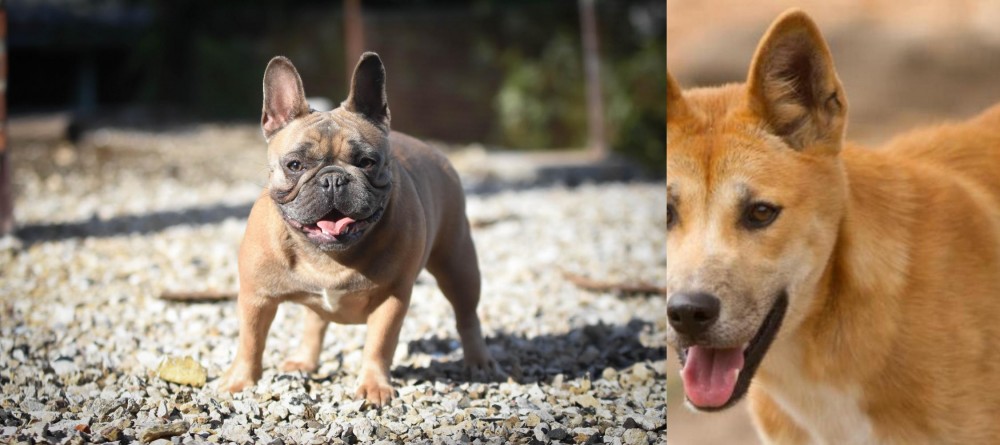 French Bulldog is originated from France but Dingo is originated from Australia. French Bulldog may grow 25 cm / 9 inches shorter than Dingo. French Bulldog may weigh 18 kg / 39 pounds lesser than Dingo. French Bulldog may live 8 years less than Dingo. French Bulldog may have less litter size than Dingo. French Bulldog requires Low Maintenance. But Dingo requires Moderate Maintenance
French Bulldog is originated from France but Dingo is originated from Australia. French Bulldog may grow 25 cm / 9 inches shorter than Dingo. French Bulldog may weigh 18 kg / 39 pounds lesser than Dingo. French Bulldog may live 8 years less than Dingo. French Bulldog may have less litter size than Dingo. French Bulldog requires Low Maintenance. But Dingo requires Moderate Maintenance
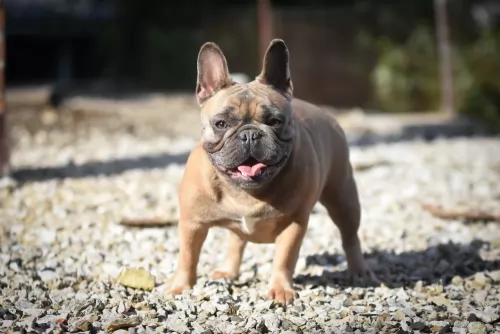 The french bulldog originated in England and are bred expecting small size bulldogs. Many lace workers in Nottingham had little bulldogs and when they emigrated to france, they brought their dogs with them. Soon they become popular in France and Europe. Then Americans showed interest in them.In 1896 frenchie was shown in United states in a show and after that they got their nickname "Frechie".
The french bulldog originated in England and are bred expecting small size bulldogs. Many lace workers in Nottingham had little bulldogs and when they emigrated to france, they brought their dogs with them. Soon they become popular in France and Europe. Then Americans showed interest in them.In 1896 frenchie was shown in United states in a show and after that they got their nickname "Frechie".
 The Dingo dog was in all probability, introduced to Australia thousands of years ago. He isn’t your usual domesticated dog and in fact it is a feral dog native to Australia.There are stories that suggest that while they may have once been pets, they were abandoned so that they reverted back to their wild state.
The Dingo dog was in all probability, introduced to Australia thousands of years ago. He isn’t your usual domesticated dog and in fact it is a feral dog native to Australia.There are stories that suggest that while they may have once been pets, they were abandoned so that they reverted back to their wild state.
They became pests for Australian farmers, going for their livestock, and huge fences were erected. The different climates in Australia have meant different kinds of Dingo developing, so while the desert ones are like the desert sands - golden yellow to red the alpine ones are rarer and are cream colored.
These wild canines were also introduced to Southeast Asia some 3,500 years ago, however the dog’s exact origin is debatable. There are any number of groups of people who could have brought the dingo to Australia, and among some of these are Indian mariners or maritime hunters.
The dog has been found in many parts of mainland Australia but never became established in Tasmania.There has also been an effort to remove the Dingo from farming areas. It is interesting to note that the first Dingo, referred to as the Australian dog, was registered at the London Zoo in 1828.
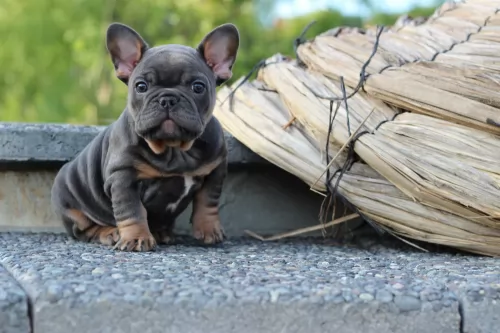 Frenchie is a good companion dog and has a powerful muscular body. They like to play but also likes to relax for more time. They are intelligent and training them is very easy until they think it a game. They are free thinkers and are not very good in obedience. Frenchies should not be leaved alone for a long time.They love spending time with humans and generally they get along with everyone. They are excellent watchdogs and alerts when strangers come.
Frenchie is a good companion dog and has a powerful muscular body. They like to play but also likes to relax for more time. They are intelligent and training them is very easy until they think it a game. They are free thinkers and are not very good in obedience. Frenchies should not be leaved alone for a long time.They love spending time with humans and generally they get along with everyone. They are excellent watchdogs and alerts when strangers come.
French bulldog suits very well in apartments. But they should be made to walk for fifteen minutes daily to avoid over weight. They should not be kept outside on hot days. Frenchies will be very happy if you stay in home. They will follow you wherever you walk inside the house. They love people so much, such that people who own a Frenchie can not imagine life without them.
 An interesting fact with these fascinating feral dogs, is that like humans, they’ve got rotating wrists. This characteristic of theirs allows them to use their paws much like the human hand to catch their prey. A domesticated Dingo can therefore learn how to open doors.
An interesting fact with these fascinating feral dogs, is that like humans, they’ve got rotating wrists. This characteristic of theirs allows them to use their paws much like the human hand to catch their prey. A domesticated Dingo can therefore learn how to open doors.
The Dingo is a medium sized dog standing at roughly 52 – 60cm in height, measuring up to 1.2 meters in length and weighing roughly between 23 to 32kg.
He has long canine teeth, a long muzzle, upright ears and a long, thick tail. The coat is essentially one color, sandy, white, cream, tan or black and sometimes there are white markings on the chest, the paws and around the muzzle.
The fur is typically shortish and thick — though the hair's thickness and length will depend on the climate of the area. The Dingo is a moderate shedder and a good brushing of the coat twice a week will keep the thick coat shiny and healthy.
These wild canines are social animals, and in the wild they live in packs. There are some that opt to live on their own.
They’e territorial, but they are able to share their living space with humans. They’re generally shy around humans, but a Dingo that is trained and socialized can get along well with children and pets in the home.
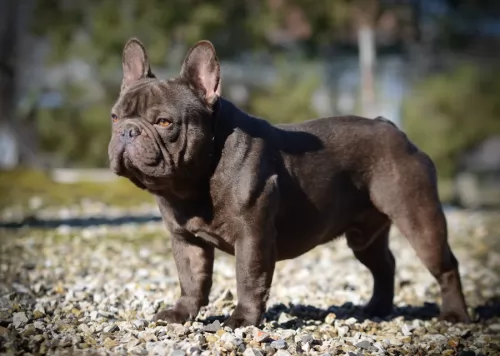 They are good children friendly dogs as they like to play with them. It will be good if they are supervised by an adult.
They are good children friendly dogs as they like to play with them. It will be good if they are supervised by an adult.
They are polite with everyone including other pets. They love to play games and chase balls but don't need much exercise.
Frenchies adapts well for apartment living but they don't like being alone for long time. They will not tolerate both hot and cold weather and so air conditioning will be better.
French Bulldogs are easy to train and are very much interested in playing.
 Dingoes have been domesticated successfully. Some people swear by them as making a fantastic pet. However, they’re wild dogs and can be unpredictable.
Dingoes have been domesticated successfully. Some people swear by them as making a fantastic pet. However, they’re wild dogs and can be unpredictable.
There are others who have tried to keep the Dingo as a pet but who have discarded them when they proved to be a danger in the home.
Dingoes can be trained but they’re high energy dogs and require a lot of exercise. How do you feel about owning a Dingo as a pet? Many people feel that its not fair to bring an essentially wild animal into your home. They feel that there are plenty of rescue dogs dying for a home without human beings searching in the wilds for an unusual pet, and regretting it later on.
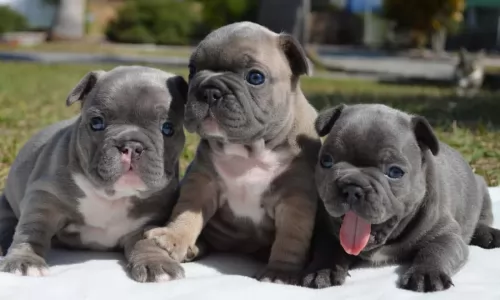 Frenchies can suffer from Von Willebrand's disease(VWD)and thyroid condition. Due to their flat faces they suffer from elongated soft palate or cleft palate. Because of their compacted air way they have inability to effectively regulate temperature.
Frenchies can suffer from Von Willebrand's disease(VWD)and thyroid condition. Due to their flat faces they suffer from elongated soft palate or cleft palate. Because of their compacted air way they have inability to effectively regulate temperature.
Any indication that the hair is unhealthy, such as brittleness and hair loss, should be addressed immediately to avoid any further damage. Hair loss becomes a problem when it becomes excessive, possibly due to disease or a particular condition.
 The Dingo is a long-lived dog and you can expect your Dingo to live till anything between 15 and 20 years.
The Dingo is a long-lived dog and you can expect your Dingo to live till anything between 15 and 20 years.
When it comes to health issues, they are robust and resilient, having less medical problems to contend with than your regular dog.
However if you see that your Dingo is not his usual robust, energetic self, get him to the vet as soon as you can.
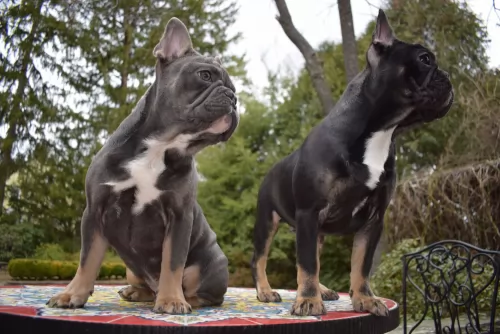 As with all dogs, proper nutrition makes your French Bulldog a happy, healthy pup. He should have his own food and water bowls. Don't feed your French bulldog puppy, uncooked meat or food that may have gone bad. Young puppies need relatively large amount of food in order to meat the demands of their rapidly growing bodies and their hectic lifestyle. Feed your puppy specially designed chewing treats from reputable pet stores.
As with all dogs, proper nutrition makes your French Bulldog a happy, healthy pup. He should have his own food and water bowls. Don't feed your French bulldog puppy, uncooked meat or food that may have gone bad. Young puppies need relatively large amount of food in order to meat the demands of their rapidly growing bodies and their hectic lifestyle. Feed your puppy specially designed chewing treats from reputable pet stores.
According to the French BullDog Club of America, there are no specific guidelines for feeding them. Options for feeding your French Bulldog are commercial dry food, canned food, raw food and homemade meals. Calories required for frenchie varies depending on size, age, activity level and metabolism.
Frenchies can be made to walk or run for a particular distances. Heavy exercises should not be given as they face respiratory problems. Avoid exercising them in hot weather as they have chances of getting heatstroke.
 Caring for your Dingo will be different to caring for your usual pet dog. You have to remember the Dingo is an ancient, wild species with some unique characteristics. Having a Dingo as a pet and companion may not be an easy task, and it is why many people selfishly dump their Dingoes – they didn’t quite live up to what they had in mind.
Caring for your Dingo will be different to caring for your usual pet dog. You have to remember the Dingo is an ancient, wild species with some unique characteristics. Having a Dingo as a pet and companion may not be an easy task, and it is why many people selfishly dump their Dingoes – they didn’t quite live up to what they had in mind.
Your Dingo, just like any other dog you’d have, will require training and socialization, and the earlier the better. No training will simply mean you having an unruly pet in the home.
Your Dingo can be fed just like you would with your other dogs. You can feed him quality dog kibble as his main diet, but you can also add in cooked rice, vegetables and chicken. Your Dingo is essentially a wild dog, so you will definitely want to include some raw meat into his diet from time to time as well.
A Dingo is used to running free so he will require plenty of outdoor exercise. He can also be put on a leash and taken for a walk. He’ll love joining you in your activities such as running alongside you as you jog or cycle. He can adapt to life in the city if he is well exercised but he isn’t suited to a small home or garden.